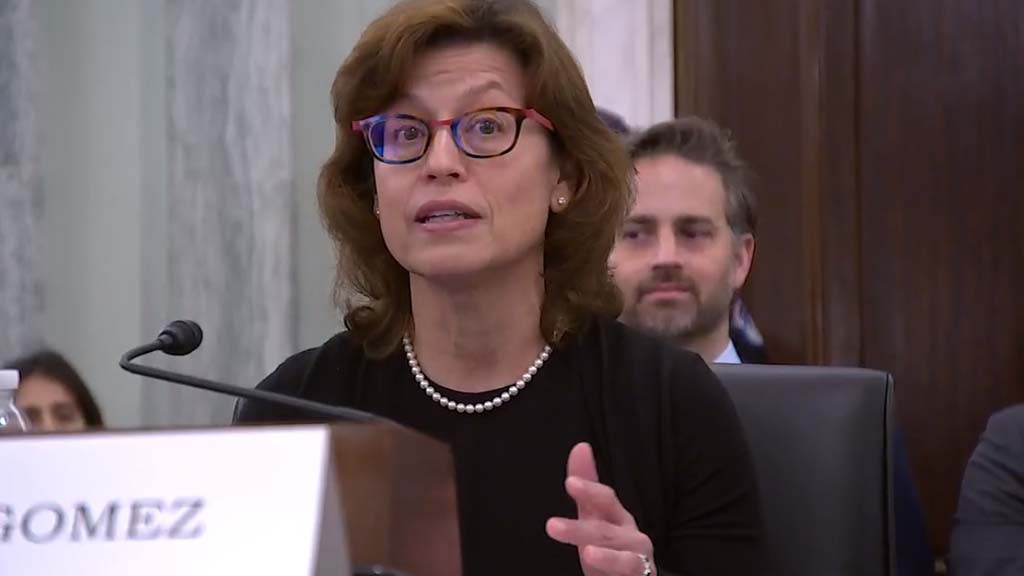
It has been more than one month since the Senate Commerce Committee favorably reported the nomination of Anna Gomez to fill the fifth, and vacant, seat on the Federal Communications Commission, but the Senate has teed up the nomination for a vote likely in September, said one observer who will welcome the Democratic majority.
Last month, the Senate unanimously invoked cloture on debate over the nomination, which means both that the nomination can be placed on the Senate calendar for a vote and also signals she will almost certainly be approved.
With a majority, Democratic FCC chair Jessica Rosenworcel will be able to tackle controversial issues including restoring network neutrality rules, reforming the FCC's Unversal Service Fund (USF) subsidies, and potentially re-regulating broadcasting and applying regulations to streamers for the first time. That last item is likely a nonstarter unless Congress weighs in to make it explicit that the FCC has authority over over-the-top video.
Also Read: Senate Commerce Committee Approves FCC Nominees
Gomez has been a senior adviser on communications policy in the Bureau of Cyberspace and Digital Policy at the State Department and has a wealth of experience in that policy. She served as deputy administrator (acting chief) of the National Telecommunications and Information Administration, which oversees and advises the president on government spectrum policy, from 2009 to 2013.
She was also counsel to the Senate Commerce Committee and a partner at Wiley LLP, which has served as something of a training ground for future FCC commissioners and chairs She worked in government affairs with Sprint Nextel as well as an associate at law firm Arnold & Porter.
It is that combination of government, private and corporate experience that has made Gomez more palatable to Republicans than predecessor nominee Gigi Sohn, who would have been the first commissioner from the public advocacy space. Gomez also has fans in the industry and among unions and advocacy groups.
The FCC has been without a full complement of commissioners and the political (in this case Democratic) majority that should have been the consequence of the last presidential election since the beginning of 2021, the longest such stretch in the commission's history.







